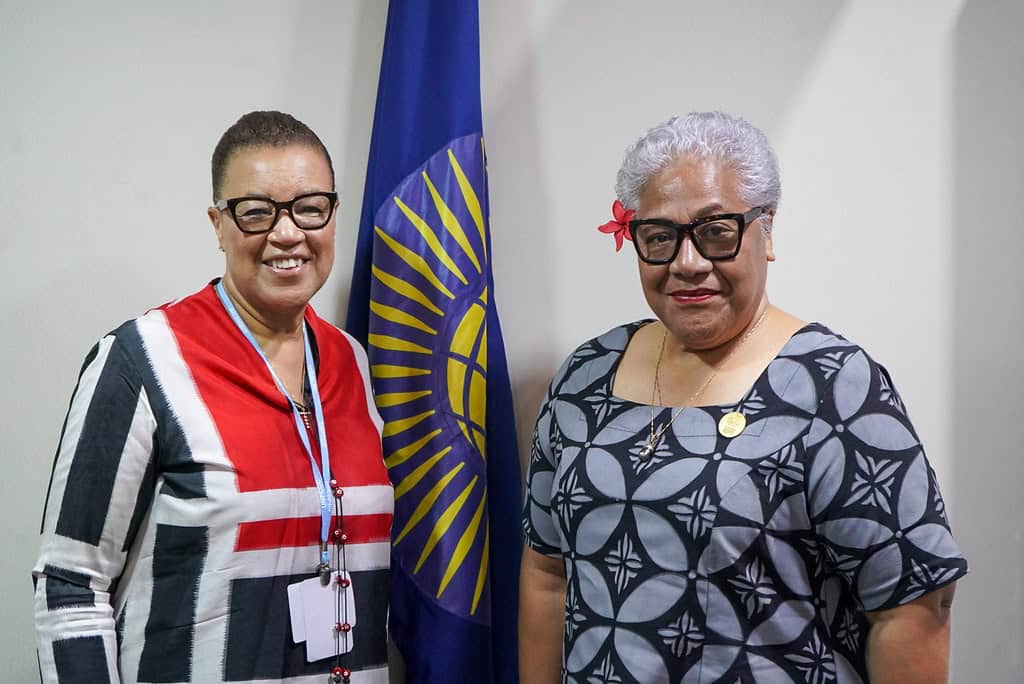Heads of state and senior representatives from all 56 Commonwealth countries will converge in Apia, Samoa next week for the 2024 Commonwealth Heads of Government Meeting, known as CHOGM. According to the official theme, “One Resilient Common Future: Transforming our Common Wealth”, member states will “harness their strengths by building resilience, unlocking potential, leveraging the ‘Commonwealth Advantage’ and fostering a connected, digital Commonwealth.”
What to expect? If previous CHOGM’s are anything to go by, the resulting communiqué and leaders statement will offer an assortment of broad statements and platitudes. That’s hardly surprising – it would be remarkable indeed if this disparate group that counts more than a quarter of the world’s countries as members developed a detailed agenda of actionable outcomes.
But does that matter? After all, the same could be said of other “talk shops”, with a lot of successful diplomacy being relatively intangible.
It has been argued that the “publicity and moral suasion” of the Commonwealth can be of value, notwithstanding it is a “precarious entity” that “relies on cooperation”. Rather than a limitation, some consider the potential for collective action between the grouping’s broad and diverse membership as an asset – particularly given it brings together countries from the Global North and Global South. Leaning into that, a renewed Commonwealth is, according to one proponent, an “ideal platform” for protecting against “the worst excesses of great power politics” given its status as the largest multilateral organisation that includes neither the United States nor China.
Others are less enthused, referring to it variously as “a moribund summit of … nations that share no true common objective” and an organisation that “endures in its benignity because no one has the heart to kill it off”. The Commonwealth has been described as “the most useless international institution to which any senior Australian political leader must commit time and energy” and as “an echo of history, a grouping too big to be meaningful and too small to matter.” Ouch.
Regardless the show rolls on. And given that this is the first CHOGM to be held in a developing Pacific Island country, expect climate issues to be high on the agenda (there are also a number of climate-focused side events). Samoan Prime Minister Fiamē Naomi Mataʻafa foreshadowed as much in her March 2023 speech to the Lowy Institute:
“Samoa will be bringing our Commonwealth family to our Blue Pacific region in 2024 … There is no better place to discuss solutions and concrete responses to the climate crisis, than in the home of those who stand to lose the most.”
Prime Minister Anthony Albanese and his UK counterpart Kier Starmer discussed climate in the context of CHOGM in their first phone call in July, potentially laying the ground for “for innovative and constructive collaboration and diplomacy”. And a joint readout of Albanese’s August meeting with New Zealand Prime Minister Christopher Luxon likewise committed “to working with Samoa to deliver a successful CHOGM that elevates Pacific priorities, including climate change”.
This contrasts with Albanese’s skipping of the 2022 meeting in Kigali, Rwanda – a rare move for an Australian Prime Minister and one that that reflected a lower prioritisation of CHOGM to which he is reportedly “ambivalent” towards. Two years on, it’s unlikely anything has assuaged this ambivalence (the story might be different if his hotel suite in Samoa had undergone a $160,000 refurbishment like King Charles’ has). Instead, the reason that he’ll be attending this year’s meeting is to support, and be seen supporting, a “Pacific family” member hosting an international summit. The fact that it is CHOGM is immaterial.
And in that sense the relevance of CHOGM is in the eye of the beholder.
